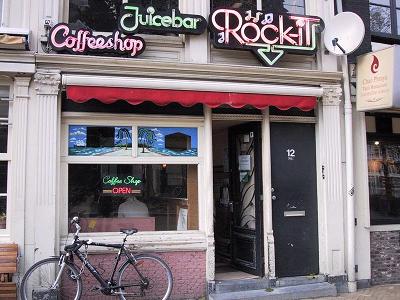
With a new rightwing government in power in the Netherlands it was just a question of time before the coffeeshops would be targeted again. Attitudes towards cannabis and coffeeshop culture have been hardening on the right in the past decade or so, at least amongst national politicians and there’s less and less support for continuing the policy of tolerance towards cannabis users. The latest argument in this battle is the nuisance coffee shops supposedly cause, especially those aimed at foreigners.
Normally we do everything to lure visitors to the Netherlands, but as soon as they come here to toke up without risking jail, it’s a nuisance. Sure, there’s no denying that some coffeeshops do annoy their neighbours and the mega popular ones down by the Dutch-Belgian and Dutch-German borders are not places you would like to live next to, but on average coffee shops cause much less disturbance than e.g. pubs routinely do. People who’ve enjoyed slightly too much hash are more likely to fall asleep than cause trouble after all, unlike your average lager lout.
So the government has come up with the brilliant idea to introduce a “wietpas“, a membership scheme for coffeeshops, where you have to get a pass to be able to buy cannabis. Only Dutch people would be able to get such a pass so no filthy foreigners will get their hands on our weed.
You can guess what that would mean for tourism in Amsterdam. One of the few things that makes the city something more than a secondrate Vienna is the ability to score cheap, safe weed and enjoy it without harassement. As the Amsterdam bureau for tourism has calculated (Dutch), of the four and a half million tourists who visit Amsterdam each year, roughly a quarter visits a coffeeshop during their stay. That’s more than a million people, who each stay on average two days and spent around 100 euros — and not just on cannabis either. How many of those will continue to come to Amsterdam if they can’t get their fix anymore?